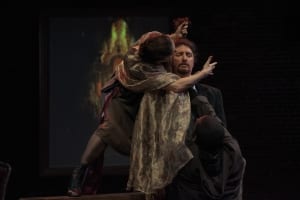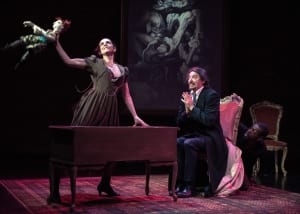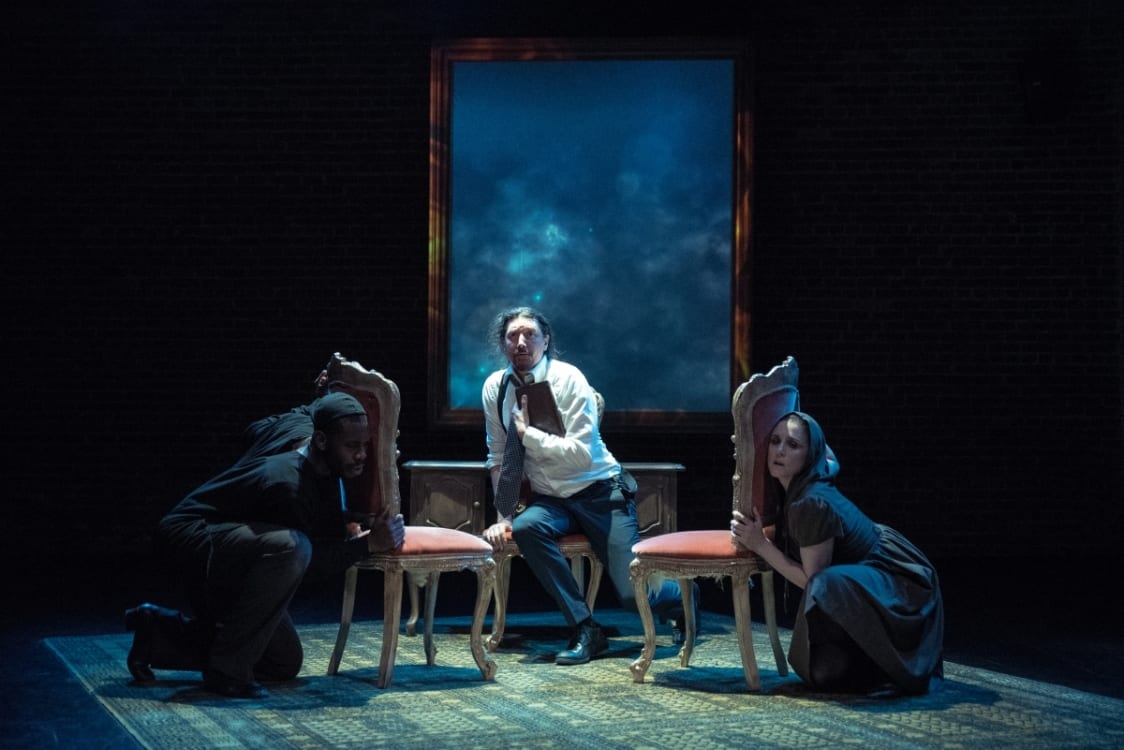James Kudelka’s masterpiece, Against Nature, returns to the stage at Citadel + Compagnie.
Against Nature is based on À rebours (1884), by the French novelist Joris-Karl Huysmans. Huysman’s novel narrates the tortured inner world of Jean de Esseintes, a recluse, who shuns the Parisian bourgeoisie for a secluded life in the country where he fashions a world of the senses intended to satisfy his every whim. The novel, considered to be the pinnacle of decadent literature, was an inspiration to other great writers, such as Oscar Wilde, and the Symbolist poet Stéphane Mallarmé. As a “guidebook of decadence”, the life of de Esseintes offers provocative explorations of the economics of consumption, especially as it relates to the position of a man of wealth and power, and his capacity to fashion a world of artifice on the backs of others.
The novel is adapted into fifteen scenes, or lyrics, each outlining the journey of de Esseintes through his various explorations of pleasure and negation. The work is genre defying and is best described as a combination of dance theatre and chamber opera with multimedia and visual components. Joe Pagnan’s set and Jeremy Mimnagh’s projections of artwork by Moreau, Goya, or El Greco serve as the aesthetic backdrop to de Esseintes’s musings on life as artifice. Alex Poch-Goldin’s libretto moves from lush hyper-sensual aesthetic descriptions to pithy wit, effortlessly melding the sublime with the mischievous. James Rolfe’s music is elegant in its simplicity and also stunningly beautiful. Not once does the phrase and cadence of his line lapse into parodic or eccentric gestures; rather, it sustains a subtly evolving sense of form rather like a villanelle, as each returning theme is magnified and transformed through de Esseintes’s fevered descent into dissipation.
James Kudelka’s choreography effects a rare balance in that he uses the bodies of the performers as subtexts that interrogate the excesses of Huysman’s text. The trappings of power and privilege in which de Esseintes cocoons himself are constantly upended and disrupted by the bodies of the two servants who wait on him. In one powerful example, the mute female servant transforms into Salomé, bearing the head of de Esseinte as John the Baptist on a platter.

The entire work is performed by six artists, demanding an intimate sense of ensemble from every one of the performers. The musicians remain on stage throughout the entire performance, robed as ghostly mendicants in a shadowy ritual. As de Esseintes, Alex Dobson’s baritone seems to take fire from within, burning to its apex, shifting through the multiple sensual ranges of the character as he wrestles with the delights and despair of his world of artifice. As the male servant, the only other sung role, Korin Thomas-Smith brings a robust, dramatic power to his performance, upending the Master/Servant dynamic. Frequently dominant, the servant narrates the master, thereby dissecting, revealing, and inscribing power from a traditionally powerless position.
But the evening’s intensity is sparked by the silent role of the female servant, danced by Laurence Lemieux. The female servant enacts all the roles in de Esseintes’ fevered dreams— whether she is a gilded tortoise pinned to death by the weight of jewelled baubles, or Salomé in her veils, or a skilful cocotte, Lemieux embodies each and every fantasy. And yet her silence and body become the very weapons with which the female servant reclaims her power. In the rich but subdued palette of the costumes and set, the female servant willfully displays crimson red underpants, each exposure an incendiary rebuke to the master’s consumption of the desired body in all its forms. Lemieux moves as if her body is possessed by forces not of her own, as she becomes each emanation of de Esseintes’s pleasure. Her silence is finally broken when she speaks the final lines of the opera, capturing Charles Beaudelaire’s explosive plea of the soul: “Enfin, mon âme fait explosion et sagement elle me crie: ‘N’importe où! N’importe où! Pourvu que ce soit hors de ce monde.” (At last my soul bursts into speech, and wisely cries out to me: Anywhere, anywhere, as long as it is out of the world.)

It is extremely rare to experience an opening night performance that is flawless, but that is exactly what the dancers, singers, and musicians brought to stage tonight. Every single word of the libretto rang with perfect clarity. The solos by singers and musicians alike had rare emotional depth and often a luminous beauty. The Citadel + Compagnie once more proves to Toronto audiences that when it comes to consummate art, they deliver..in every sense.

